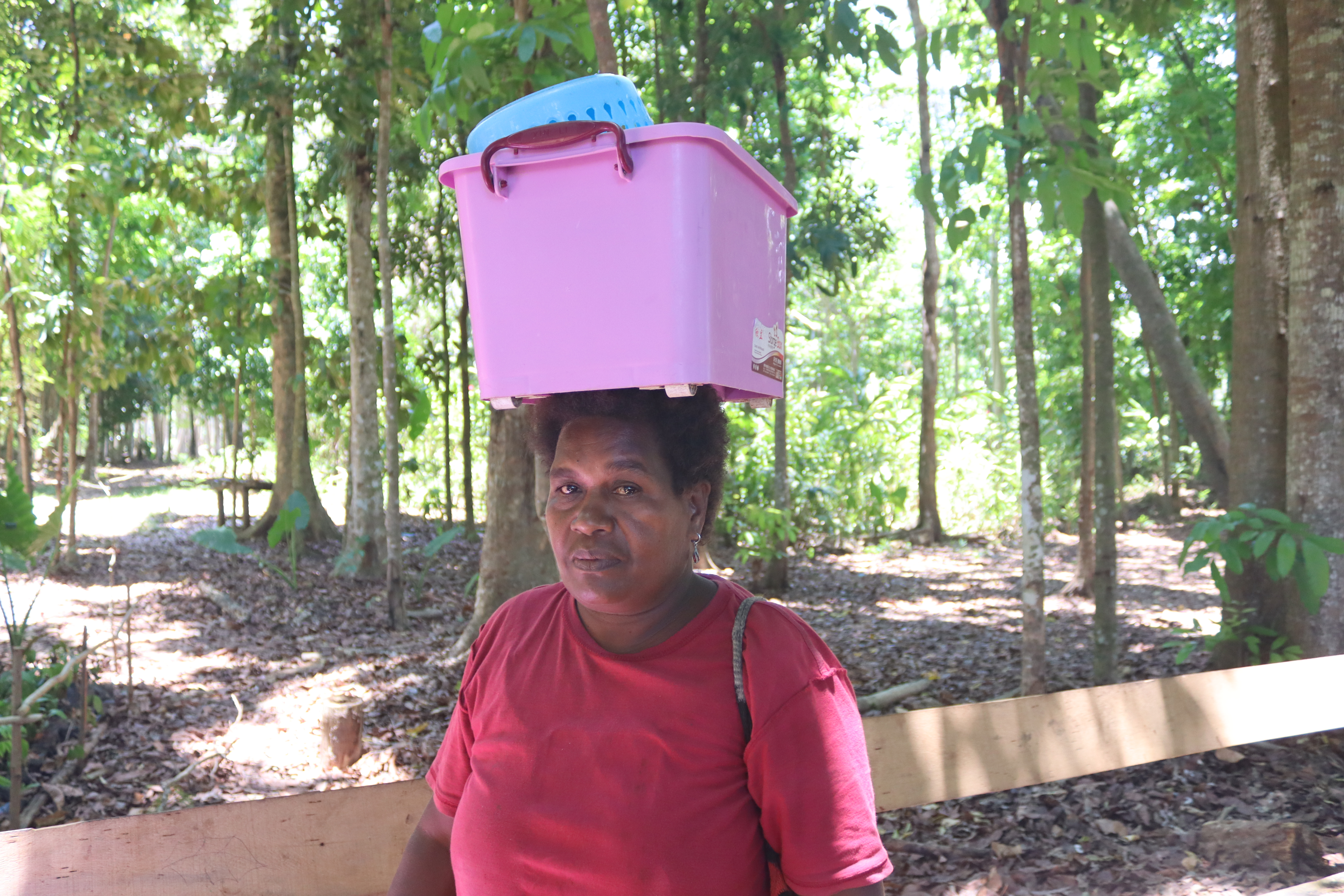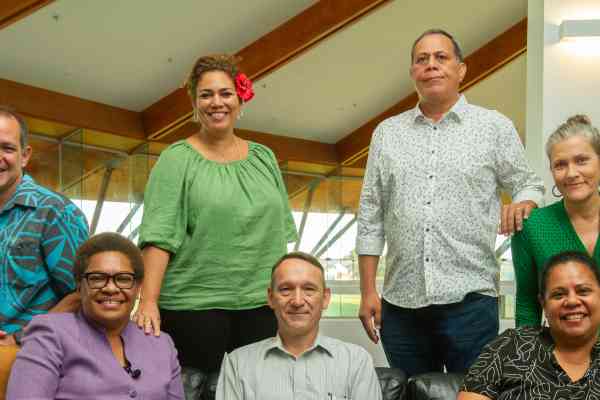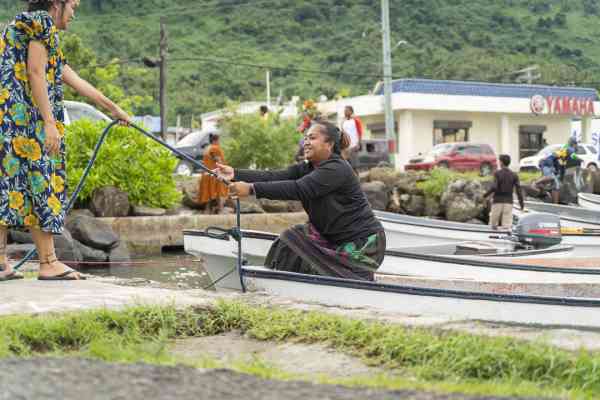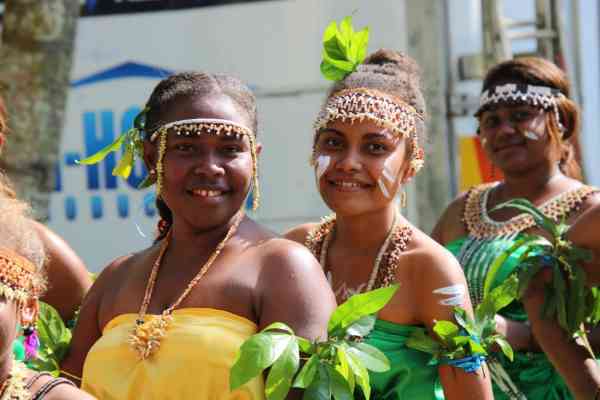This year, International Women’s Day on March 8 coincides with the Pacific Week of Agriculture and Forestry, held 6 – 10 March in Nadi, Fiji.
Meet Maria Bao of Barana village.
Barana village is on the outskirts of East Honiara, Guadalcanal Province in the Solomon Islands, a small community sprawled between hills marked with remnants of World War II.
Maria manages a small farm where she plants potatoes, cassava, beans, cabbage, tomato and ‘other things,’ she could not recall at the time but explains her farm grows just about every important local food crop.
In the blistering heat during another typical day in the village, Maria and a group of women farmers are forced to take a break beneath the kapok trees that grow near their farms. Maria strolls leisurely with a large container securely balanced on her head, trying to find a spot to rest in the shade.
Every day, Maria works on the farm, with the main task usually fetching water. The village’s main water source is from the streams and a water pump. When asked how far they were, Maria says, “It’s not too far for me, but I go there daily. For others visiting or not from here, it might seem far.”
Today she and the other farmers are ending the day early because it is too hot. There hasn’t been any rain for the past few days, and the stream for drinking has run dry. The second nearby water source is a water pump located in a different area that needs until the afternoon to refill.
“Villagers that might have the money will call and order fresh water to be filled in their water tanks. For those who depend on the local water source, we just have this,” Maria explains.
Access to water is their community’s biggest challenge.
Maria’s farm produce is sold at her makeshift markets set up by the local school, about 15 to 20 minutes away. Her customers can also pre-order their vegetables, and she takes a 10-minute taxi ride to Borderline settlement to deliver them.
During the Coronavirus (COVID-19) pandemic, Barana village became an important food source. Honiara was locked down, leaving surrounding communities cut off from food supplies and resources.
“We normally went down to Borderline to sell food but this time, we set up our market stalls in the village. It was good for business,” Maria recollects. Hundreds flocked to Barana to buy fresh vegetables and crops. The market sold cassava, ginger, yam, turmeric, Chinese cabbage, pumpkin, and beans. Ginger had run out everywhere and families drove long distances to buy it from Barana.
Setting up markets in the village also meant that transport costs were cut, and with markets closed inside the emergency zone, the demand for fresh fruits and vegetables was high.
“We were able to provide people with food but at the same time, it also boosted business for our community,” Maria beams.
Although farming is the main source of income for the community, unfavourable weather and lack of water access often derail productivity and business. To combat this, Maria finds other products to trade for income. The trees surrounding the women are called balsa and kapok trees. The seed pods of these trees produce fluffy wool-like material. On days when farming isn’t possible, the women use the material from the balsa and kapok trees to make pillows that are sold to help make extra money.
On the surface, Maria is a woman with a gentle smile casually sitting under the tree shade on a hot sunny day. In reality, she is resourceful, an income earner, a businesswoman, a farmer, a leader and a pillar of strength for her family: one of the many women that served as the backbone of their community’s resilience during the global pandemic.
Marie personifies persistence, strength, and leadership, and on this International Women's Day, we celebrate the millions of Marias around the world who are the backbone of our communities.
International Women’s Day (IWD) is commemorated on March 8 annually to promote gender equality and women’s human rights. Women play a significant role in agriculture, as they are often responsible for the food security of their families and communities, planting, growing and managing their gardens. Yet, they are not often recognised for their vital role, particularly in rural economies, despite making up 45 per cent of agricultural labour.
Maria’s story is part of a series of interviews conducted by the Pacific Community’s (SPC) Biosecurity and Animal Health and Production team from the Land Resources Division (LRD) through the Safe Agricultural Trade through Economic Integration in the Pacific (SAFE Pacific) project funded by the European Union. The farmer interviews are collected during biosecurity and animal disease surveillance in the countries in SAFE Pacific target countries.



